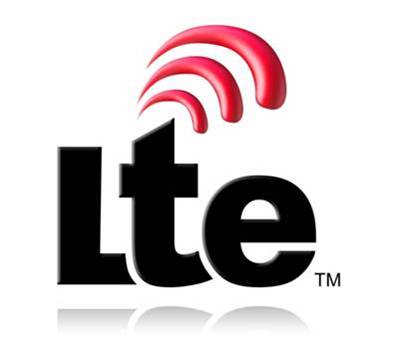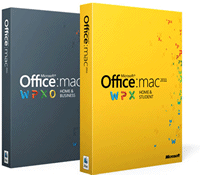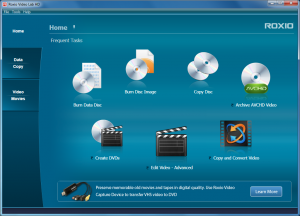
FCC clears LightSquared for LTE wholesaling
LightSquared, the company building the first hybrid LTE/Mobile Satellite network in the U.S. announced Wednesday that it can now vend its services as either dual-mode satellite/cellular or just as cellular, according to the demands of its wholesale partners.
This announcement is significant because LightSquared is building a wholesale network that will end up being sold to consumers under more familiar networks' brand names.

Facebook statuses may become ads without any opt-out
Facebook has unveiled a new advertising option for its partners that would allow companies to pull user's statuses and use them in ads on the service. Called Sponsored Stories, stauses of a user mentioning a company would be able to be used by a company in ads to that user's friends.
Users would not be able to opt-out of being used in these ads. Facebook said that check-ins to business and places are lost in our ever-moving news feeds, and companies have no way of taking advantage of the marketing potential these statuses could have. Thus, Sponsored Stories would essentially turn any status mentioning a brand into a potential ad.

Is iPad a PC? Canalys says yes, and that makes Apple No. 3 in global market share
In August and, again, in October, I asked if Apple would be the US PC market share leader if iPad counted in the numbers. It's a compelling question because of iPad's sudden sales success and analyst firms' strange classifications. For example, IDC counts iPad as a media tablet but slates running Windows as PCs. Today, Canalys released numbers counting iPad as a PC, which propels Apple to the No. 3 spot globally. Canalys' data is for fourth calendar quarter 2010.
My question for you: Should iPad or Samsung Galaxy Tab really count as PCs? Canalys counts both and other tablets. Please answer in comments.

Amazon rolls out the first 'Kindle Singles,' short form e-books
Wednesday, Web retailer Amazon launched its Kindle Singles line of literature designed specifically for consumption on e-readers. The works, priced between $1.00 and $3.00, include original works of prose, essays and theses, and the the first TEDBooks.
Last October, Amazon introduced Kindle Singles as a format ideally suited for the reading habits of e-reader users. They are longer than a magazine article and shorter than a novel (around 20,000 words or 60 pages,) and specifically tailored to deliver well-developed content in a very direct manner, sort of like Reader's Digest condensed literature.

Gartner: 185B mobile app downloads by 2014
So, you thought Apple's 10 billion application downloads was a big number? Gartner says mobile users will download 17.7 billion applications from mobile app stores this year, a 117 percent year-over-year increase. Get this: 185 billion mobile apps downloaded from app stores by 2014. You believe that? I sure as hell don't. The mobile market is yet too volatile to forecast anything, but these analysts keep trying and keep changing their predictions every couple of months. Surely the "psychic reader" down the street could do no worse and charge much less money doing so.
I nitpick because, despite mobile apps early gains, the browser may yet prove to be the better way to consume mobile applications than specialized ones downloaded from app stores. Search as a utility looks to be the killer app for mobile devices, in part because of how differently people use cell phones than, say, PCs. The person who might spend hours in front of a PC, spends seconds or minutes at a time on a smartphone (though many more interactions). Phone behavior is more contextual and personal, where utility, such as finding the nearest Starbucks or playing Angry Birds while waiting for the bus, matters more.

The key to fixing the U.S. science education gap is outside of class
On Tuesday, a shocking report about the condition of the U.S. education system made headlines in the biggest news outlets. The 2009 National Assessment of Educational Progress found that this generation of school children has a painfully low percentage of scientific proficiency. Approximately two-thirds of children in the fourth grade in 2009 lacked science proficiency, and that number reached almost 80% among high school seniors.
The U.S., it appears, has been sorely neglecting science education.

5 things every tablet needs to succeed
More aptly stated: 5 things every other tablet vendor but Apple needs to succeed.
Seemingly everyone who owns or can outsource a manufacturing facility is releasing a tablet this year, and many of them were announced during Consumer Electronics Show 2011. To date, about 85 tablets are in the queue. Most of them will fail. The contenders will compete with one another to lessen the numbers long before any one poses competitive threat to market leader iPad. To match, or even outsell iPad, manufacturers need at least five things, presented here in no order of importance. This list focuses strictly on logistics and purposely omits usability and design, which are separate topics for a future analysis.

Touch Technology isn't just for fingers...
Celebrating the company's 50th anniversary, Plantronics on Wednesday unveiled the latest product in its line of wireless headsets for office scenarios, the Voyager Pro UC v2.
Utilizing capacitive touch sensors, the Voyager Pro UC and its new software suite can intelligently interact with softphones and mobile devices based simply upon the user's physical contact with the headset.

Microsoft launches 30-day trial version of Office 2011
In a move that signals the company's keenness to take full advantage of the increasing popularity of the Mac format, Microsoft has announced the availability of 30-day trial versions of Office for Mac 2011. The trial version of the office suite is for the Home & Business edition, which means that it includes Outlook and gives users the opportunity to try out all of the components of Office.
The release of a trial version of the office suite is likely to please PC users who have recently made the move to OS X, as it enables them to work with familiar software. It also enables Mac users who have previously avoided Microsoft software to take the suite for a test drive without having to part with any cash.

IDC: Developer interest in Android nearly equals iOS
What do application developers really care about? That's the question IDC seeks to answer with a new report released today based on a survey of 2,235 application developers conducted between January 10-12. "The survey reveals how new entrants to the tablet market are changing application development priorities and how businesses large and small are accelerating their efforts to build a mobile application strategy to deal with an explosion in apps, mobile devices, operating systems, and capabilities," according to the report.
The clincher: "Google has nearly caught up to Apple in smartphone popularity and is closing the gap in tablets." Read that sentence a second time and let the implications sink in and think about what it ultimately means for all the seemingly endless rah rahs for Apple's iOS.

Senators Cantwell and Franken introduce bill to revise net neutrality rules
Tuesday, U.S. Senator Maria Cantwell (D-Wa.) introduced a bill called The Internet Freedom, Broadband Promotion, and Consumer Protection act of 2011 on behalf of herself and co-sponsor Senator Al Franken (D-Mn.)
Both Cantwell and Franken have expressed public concern about net neutrality in the wake of the FCC's passage of the Open Internet Order and approval of Comcast's joint content venture with NBC Universal, and this bill seeks to create stronger guidelines for net neutrality.

LibreOffice releases first stable build
The Document Foundation has released its first stable build of LibreOffice. Version 3.3 arrives ahead of schedule thanks largely to the growth in developers who have contributed to LibreOffice since its first appearance in September 2010. The number has mushroomed from under 20 to over 100, allowing LibreOffice to exceed the "aggressive" targets set by its founders when this offshoot from OpenOffice was first announced.
LibreOffice 3.3 introduces 10 new features to the program, many of which are exclusive to LibreOffice. Examples include the ability to import SVG graphics directly into the Draw application and edit them interactively. Title pages are now easier to create in Writer thanks to a new dialogue box, while a new Navigator view helps simplify the navigation of large documents. There are a number of new import filters too, including support for Microsoft Works and Lotus Word Pro, while the Corel WordPerfect filter has also been improved. There are also a number of extensions bundled across the suite, such as the Presenter View in Impress.

Roxio Video Lab HD provides a capable suite with plenty of interesting tools
The consumer video editing market is a competitive place, packed with impressive-looking apps, each vying for your attention. And yet, Roxio's new Video Lab HD, originally a component of Roxio Creator 2011, still manages to stand out from the crowd, thanks to a lengthy feature list.
The core 32-track video editor, for instance, can import your footage, then apply various corrections, and add professional video or transition effects. It works with standard, High Definition and even 3D footage, being able to import clips directly from many 3D cameras. You don't have one? No problem, the program can also convert your 2D movies or images into 3D.

Amazon to offer bulk e-mail under web services platform
Amazon on Tuesday debuted a new bulk e-mail solution for businesses and developers as part of its web services offering. According to the company, Amazon SES is intended to take out the complexity of sending large amounts of e-mail for smaller businesses while ensuring delivery in a timely manner.
Users would receive their first gigabyte of data transfer at no charge, and would be free to those who use Amazon Web Service's EC2 cloud or Elastic Beanstalk application-management service as long as it falls within their bandwidth allocations. 2,000 e-mails per day would be covered under the free plan.

Verizon to offer iPhone users $30 unlimited data plan
In what could be considered a shot across the bow of AT&T, Verizon said late Monday that it would offer its $30 per month unlimited data plan that it offers for smart phones to iPhone users as well. Apple's iconic device is set to debut on the network on February 10.
Last June, AT&T restructured its iPhone data plans. While the rates dropped, the company also made the decision to do away with unlimited data. While Verizon's move does look like it is a response to AT&T's decision, at the same time Verizon is doing away with its $15 monthly 150MB capped plan, meaning unlimited data is the only option.



